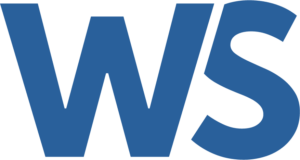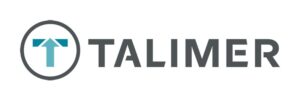The rise of the gig economy has brought new challenges. Although it may be easy now to connect workers and businesses, it can still be challenging to make sure those connections are the right ones.
Based on a shared belief that everyone should enjoy their work, Milwaukee-based startups Talimer and WorkShift are tackling that challenge head-on. Though working in two very different industries–hospitality and tech—their approaches are similar, as is their belief that starting in Wisconsin has been a major factor in their success so far.
WorkShift solves scheduling for service workers
 Co-founders Manny Lara, Bekki Yang and Julio Fernandez began working on what would become WorkShift in the fall of 2019, with the intentions of building out their service industry staffing platform in time for the Democratic National Convention’s arrival in Milwaukee the following summer.
Co-founders Manny Lara, Bekki Yang and Julio Fernandez began working on what would become WorkShift in the fall of 2019, with the intentions of building out their service industry staffing platform in time for the Democratic National Convention’s arrival in Milwaukee the following summer.
Though that opportunity never materialized, Lara says the pandemic gave them valuable time to test and build out a platform they believe can transform the restaurant industry’s outdated hiring practices.
WorkShift is an app that lets restaurants fill—and service workers find—open shifts quickly. Lara and Fernandez both have backgrounds in health care human resources and were familiar with similar online platforms connecting nurses with open shifts. When Yang approached them with the idea, they didn’t see why the same wouldn’t work for the service industry.
Lara describes the way restaurants are left to fill empty shifts as “antiquated.” Owners and managers rely on a patchwork approach, calling staff on their days off, asking them to work long shifts or depending on them to recommend temporary help on short notice.
“We’re a marketplace, we’re in the middle with a technology that allows owners to post their availability and then people who want to earn extra see those available shifts and match up,” he says.
WorkShift’s revenue comes from charging restaurants a small upcharge for every shift booked. As restaurants start reopening and events canceled by the pandemic get rescheduled, Lara says restaurants are scrambling to find workers. They are willing to pay to access qualified help on short notice.
On the other side of the equation, WorkShift lets workers who can’t, or don’t want to, work a regular schedule find shifts when they want them. They can indicate the types of jobs they’re interested in and see how much the shifts they’re offered are paying.
“We also want to be able to grow the workforce from within—for example, dishwashers or servers who want to move up to bartender or host,” he says. “We want to work with restaurants and say, ‘We’ve got people that are interested in becoming bartenders or whatever the next level is. Would you host an event where we can teach them?’ Now those workers are more marketable, they can earn a little more, and they become a resource for those bars and restaurants.”
Talimer knows the value of tech talent
 Though Talimer is aimed at a very different set of workers, co-founders Erica Conway and Ken Osterman are also focused on providing a quality experience for both talent and the companies looking to hire them. They’ve both witnessed firsthand the challenges that get in the way of that.
Though Talimer is aimed at a very different set of workers, co-founders Erica Conway and Ken Osterman are also focused on providing a quality experience for both talent and the companies looking to hire them. They’ve both witnessed firsthand the challenges that get in the way of that.
As owner of C2, Conway has been helping tech and creative talent connect with employers for almost two decades; Osterman, though his various positions at Harley-Davidson, had been hiring tech and creative talent for at least as long.
“Existing freelancer platforms—like Fiverr, UpWork and 99designs—are predatory. They’re giving the business all the agency, saying, ‘Hey businesses, come get talent. It’s cheap.’ They’re not educating their clients about the value of this person’s time or why this is the market rate for that time,” Conway says.
“We also interviewed businesses that were using these sorts of marketplaces. They would put a request out and get, in some cases, dozens or even 100-plus responses. Trust became a real question. ‘Who am I working with? Have they been reviewed? Have they been screened?’”
Talimer is hoping to change that by providing concierge-level service to businesses while strongly advocating for talent.
“We take a lot of time on the front end and ask the freelancer: What do you want to be doing? Where do you do your best work? And because we do that front-end work, we end up making matches that last longer and are better for both the client and for the freelancer,” she says.
Unlike most platforms, Talimer lets tech freelancers set their own rates, with the company charging a transparent markup on top of that. For those working 30 or more hours per week through them, Talimer also offers access to benefits like health insurance.
Building connections through FOR-M
Both WorkShift and Talimer have gotten off the ground with help from FOR-M, a free, six-week workshop series sponsored by the MKE Tech Hub Coalition and run by The Commons entrepreneurial skills accelerator and WePivot, a Milwaukee-area organization dedicated to promoting diversity within the tech industry.
Alternating between concept-focused workshops and interactive mentor sessions and culminating in a final pitch session, FOR-M helps new entrepreneurs solidify their startup idea, understand the next steps and connect them with Milwaukee’s tech ecosystem.
Despite their robust professional networks and previous business experience, Lara and Conway both say participating in the program was extremely valuable from a networking and planning perspective.
“It was a great room to be in. Just meeting everybody else and hearing their ideas. The people in the room, the mentors that they brought in…It was just a good room to be in, and super diverse,” Conway says. “We ended interviewing people in the program who were freelancing, met people who now have startups that we can do business with. It was overall a great experience that was, for me, driven by the people.”
With funding from WEDC’s Seed Accelerator Program, the MKE Tech Hub Coalition recently awarded WorkShift, Talimer and four other FOR-M startups $10,000 grants.
WorkShift plans to use the funds to help develop a mobile version of its web platform. Longer term, they’re looking at other midsize cities to expand to. “The great thing about technology is once you’ve created it in one market, you really can drop it into a lot of different markets,” Lara says.
As for Talimer, Conway and Osterman are working on adding in some automation to their current hands-on onboarding process.
Thriving thanks to Midwest support
Unsurprisingly, Lara, Conway and Osterman are unabashedly enthusiastic about Wisconsin’s tech and startup community—emphasis on community—and the growth happening within it.
“We got started thanks to a lot of personal relationships and connections. I think Milwaukee is prime for that, along with Madison, Sheboygan, Racine and other places,” Lara says. “I think the advantage we have here is that when you float an idea, you find a lot of supportive people. And they say, well, let me put you in touch with this person or that person, and all of a sudden you’ve got a lot of advocates and supporters that that want to help.”
“Things are really beginning to happen in the startup scene here. And while it’s it is not yet Silicon Valley or one of the other cities that you immediately think of when you think startups, I believe strongly that the city is on the path to get there and to be that place,” Osterman says.
“I think it’s an exciting opportunity to be a part of that journey, not only for us as a business, but to be connected with other businesses in this space. It’s a small community where everyone’s here to help each other. I’ve got friends and former colleagues in Silicon Valley and generally they’re competing against each other. Here, folks are here to help each other and lift each other up. And so there’s a real difference in the Midwest versus what’s happening out in some other cities.”
FOR-M’s spring incubator program is already in progress, but its fall cohort will be starting in September. If you are interested in participating, you can visit for-m.org to learn more and sign up for updates.
